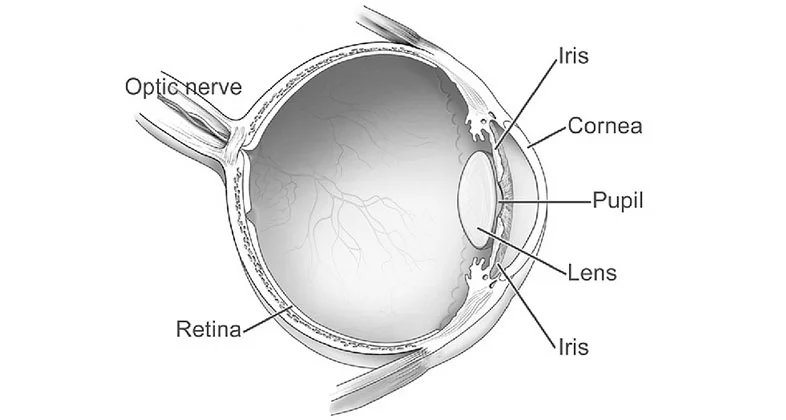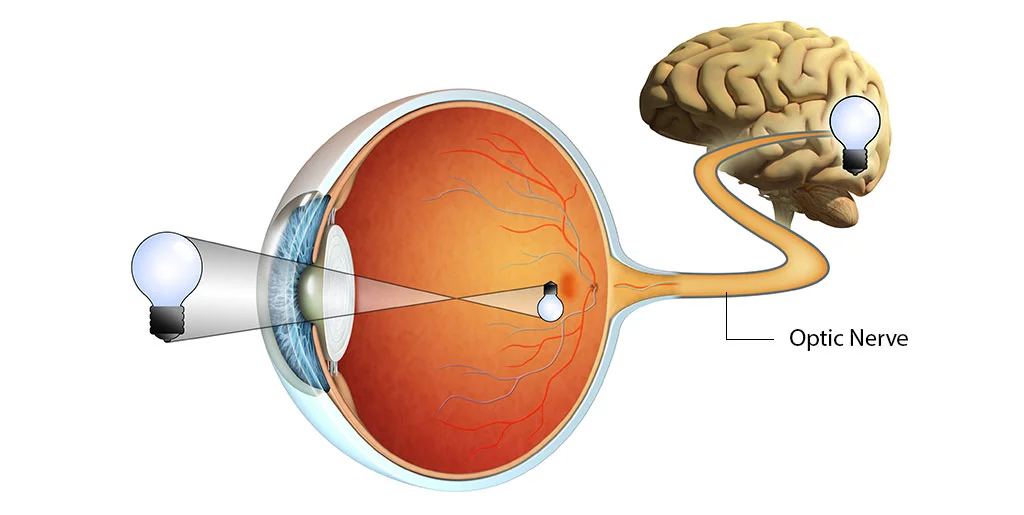
#LIVE2.0 #Review
More people around the world experience vision loss due to some form of optic nerve damage, than any other eye disease. Your eyesight may have started to deteriorate and you might not find out until it is too late. Vision lost due to optic nerve damage cannot be recovered, it may be stopped, but it cannot recover. 79.6 million have been reported to be diagnosed with glaucoma in 2020 and the number is likely to be increased to 111.8 million individuals in 2040.
Those are grim odds, and preventive and precautions measures at the right time might save you a lot of pain, medication and tears. Let’s begin by first knowing what the optic nerve really is.
The optic nerve is a bundle of more than a million nerve fibers that carry visual messages from your eyes to the brain. There is one optic nerve present on the back (which is the retina) of each eye. So any information that is delivered to the retina, is sent to the brain via the optic nerve. Think of it as the highway connecting your brain and your eyes.

Optic Nerve – A highway connecting the brain with the eye
Now, damage to an optic nerve can cause vision loss. The severity and progression of this vision loss depends on how and where the optic nerve took damage. You might lose vision in one eye initially and then the second eye might follow, or experience vision loss in both eyes altogether. Let’s explore different causes leading to optic nerve damage and how they affect your vision.
There can be many causes to optic nerve damage and in turn, the nerve damage can be of various forms as well. Broadly speaking, there are two main types.
Some of the more common eye diseases that cause optic nerve damage include glaucoma, optic neuritis, optic nerve atrophy and optic nerve head drusen.
Glaucoma a leading cause of blindness in the worldwide as reported by WHO. This occurs when the fluid pressure inside the eyes slowly rises to an amount that is damaging to the optic nerve.
When a person is affected by glaucoma, apart from a deteriorating vision, they experience various other symptoms like:
Optic neuritis is an inflammation or swelling of the optic nerve. It can occur in isolation of itself or it could be part of some underlying disease or condition. Things like infections, immune-related diseases like multiple sclerosis and side effects of some medication are some of the more commonly documented causes of Optic neuritis.
People with optic neuritis experience varying symptoms. Some people may experience a sudden loss of vision and then the vision coming back after some time, while some might feel their vision getting blurry and slowly fading to complete blindness, in a matter of hours.
Other symptoms include:
In any case, each time the vision returns, a percentage of vision is lost forever.
Optic nerve atrophy is a degeneration or gradual damage to the optic nerve. There could be multiple causes like the eye not getting proper blood flow, some underlying disease like brain trauma, inflammation, degenerative disorders, hemorrhage, tumors, or exposure to a toxic substance.
Optic nerve head drusen are pockets of protein and calcium salts that build up in the optic nerve over time.
Usually asymptomatic, but Symptoms of optic nerve head drusen may include:
According to Eye Wiki, from a sample of people with visual field defects, 71% had eyes with visible drusen and 25% to 30% had eyes without visible drusen.
Depending on the cause, the treatment and precautions will obviously differ. Unfortunately, for most cases of optic nerve damage, there are no treatments that can restore your sight but you can take measures to stop further worsening of the symptoms.
Whatever the condition may be, patients with any case of optic nerve damage should follow serial visual field exams, optic nerve fiber analysis, and repeated intraocular pressure checks.
There have been numerous studies on finding ways to repair the damage to the optic nerve but up till now, no conclusive results have been surfaced. Scientists are continually studying animals like frogs and fish, which have the ability to completely heal optic nerve damage, in the hopes of finding out what enables them to do so.
However, a breakthrough research on utilizing chelated zinc has shown positive results with mice trials. If proven to work similarly well in humans, such treatment could greatly benefit patients with optic nerve injury, glaucoma, and perhaps other types of nerve fiber (axon) injuries as well.
If you or someone you know is living with optic nerve damage, there are countless ways you can opt to make your life easier. Using corrective lens, adopting a healthy life style and incorporating proper exercise and healthy food will help immensely. Low vision aids like IrisVsion have proven to remove a lot of roadblocks and allowed patients to do things they once thought they couldn’t.
For inspiration, here is a story of Lannie showing how he is living with optic nerve damage.
Support
See and Connect Today!
IrisVision Global, Inc.
5994 W. Las Positas Blvd, Suite 101
Pleasanton, CA 94588
Email: [email protected]
Support: +1 855 207 6665
Support
See and Connect Today!
IrisVision Global, Inc.
5994 W. Las Positas Blvd, Suite 101
Pleasanton, CA 94588
USA Email: [email protected]
Support: +1 855 207 6665
Support
See and Connect Today!
IrisVision Global, Inc.
5994 W. Las Positas Blvd, Suite 101
Pleasanton, CA 94588
Email: [email protected]
Support: +1 855 207 6665